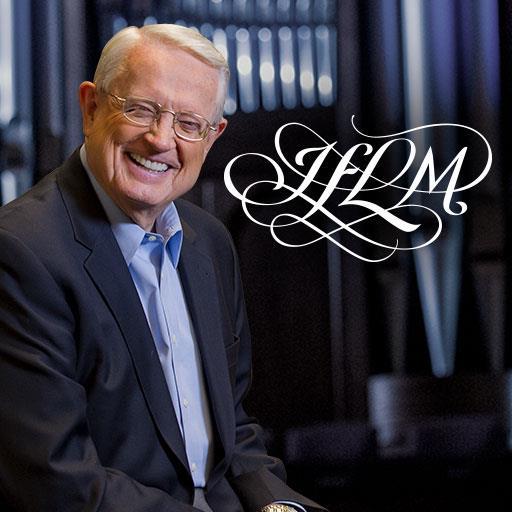It comes as a surprise to no one that I love music. Choral music, instrumental music, popular music, as well as classical stuff . . . folk tunes, ballads, fun songs, and serious works . . . country western and bluegrass, as well as the patriotic and romantic. For me, music is a must.
This has resulted in my becoming a student of the hymns . . . the great hymns, those that have endured the test of time. Those we sing on Sunday linger in my mind for most of the week that follows. I hum them on the way home. I find myself singing them in the shower the next day or two.
Like you, I have a few favorites, but I'm always thrilled to let whatever we sing at our church invade my thoughts. Most of the hymns I've memorized bring to my mind meaningful thoughts and grand, vivid memories that have significant events connected to them. Invariably, those things pass in mental review as I become "lost in wonder, love, and praise"1 in my worship. I think it's unfortunate that the stately, strong hymns are slowly being replaced by shallow pieces that lack literary fiber and theological depth. I have no axe to grind, you understand, just a nagging concern that the message of our faith not become so "updated" that we lose a firm connection with our roots. Some of the things being written today are good and solid, but, unfortunately, they are rare. My plea is that we maintain a musical relevance as well as a historical respect in our hymnody.
Recently while thinking of the glorious message of the resurrection, I found myself suddenly overwhelmed with the music that has accompanied the subject of the empty tomb for centuries. Various scenes crossed my mind. I saw myself as a lad holding my mother's hand in a little Baptist church in the South Texas town where I was born. Years later I sat in a sunrise service on the island of Okinawa fighting back tears of loneliness. Another Easter hymn took me to Chafer Chapel on the campus of Dallas Seminary, where 350 of us preparing for ministry stood side by side and sang heartily of the Savior we'd soon be proclaiming. I revisited other geographical spots in my nostalgic pilgrimage, and each time I gave God thanks that Job's words were mine as well:
"I know that my Redeemer lives." (Job 19:25)
Gloria and Bill Gaither's now-dated but familiar lyrics still bring to life Job's hope:
Because He lives, I can face tomorrow;
Because He lives, all fear is gone.2
What a grand heritage is ours! We dare not allow Easter to pass without sufficiently rejoicing in and declaring our hope. It is Jesus Christ—the miraculously resurrected Son of God—who remains the object of our worship and the subject of our praise. Samuel Stennett was correct, way back in 1787 when he wrote:
To Him I owe my life and breath,
And all the joys I have;
He makes me triumph over death,
And saves me from the grave.3
That hope has kept believers strong in the darkest places. Your situation may not be as grim as the son of a tinsmith in that Bedford jail, but perhaps his words are all you need today to revitalize your faith. As the pack of sin fell from Christian's back, John Bunyan's timeless character exclaimed:
Thus far did I come laden with my Sin;
Nor could ought ease the grief that I was in,
Till I came hither: What a place is this!
Must here be the beginning of my bliss?
Must here the Burden fall from off my back?
Must here the strings that bound it to me crack?
Blest Cross! blest Sepulchre! blest rather be
The Man that there was put to Shame for me!4
Easter is great-music time. Easter is revival-of-hope time. Easter is Christ-exalting time. That should come as a surprise to no one . . . but to some it will.
To most folks, Easter is nothing more than buy-some-new-clothes time . . . or church-going time. Are they in for a surprise! So while you and I are singing and reflecting, let's also be praying. On Easter Sunday, some will discover that Easter is pack-dropping time.
- Charles Wesley, "Love Divine, All Loves Excelling," public domain.
- Gloria Gaither and William J. Gaither, "Because He Lives," in The Celebration Hymnal: Songs and Hymns for Worship (Nashville: Word/Integrity, 1997), hymn no. 358.
- Samuel Stennett, "Chief among Ten Thousand; or, the Excellencies of Christ," in The Works of Samuel Stennet (London: Thomas Tegg, 1824), 539, www.books.google.com (accessed February 1, 2013).
- John Bunyan, The Pilgrim's Progress (Westwood, N.J.: Barbour and Co., 1985), 36.
Copyright © 2013 by Charles R. Swindoll, Inc. All rights reserved worldwide.






